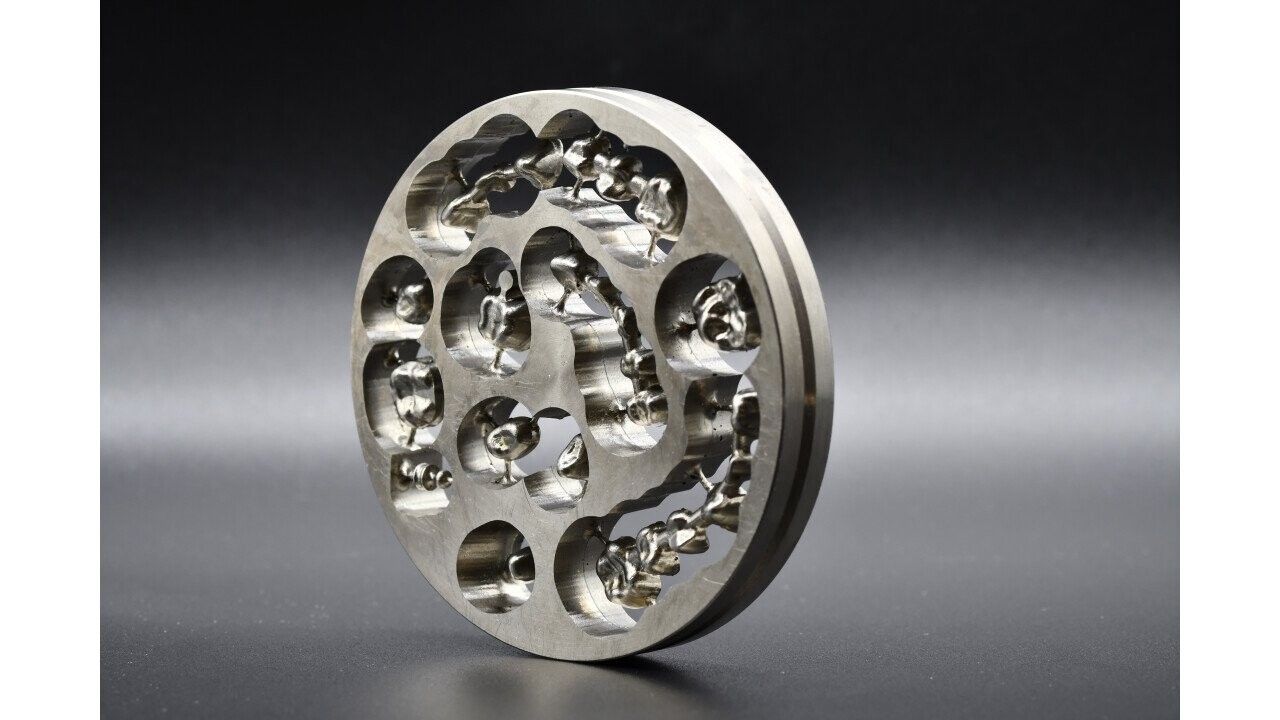In its tool for zirconium dioxide, the toolmaker was able to increase the service life by up to 30 percent while maintaining the same quality. Hufschmied specializes in material- and process-specific tools and is known in various industries for optimization potential.
Process reliability in titanium machining increases
Parts milled from titanium perform important tasks in dental technology and as a basic component of implants. DIN EN ISO 22674 specifies what has to be worked with, and dental laboratories have to see how they can efficiently process such demanding materials as titanium grade 4 and titanium grade 5. Reliable processes are a top priority. Novel tools from Hufschmied Zerspanungssysteme promise significant improvements.
In its tool for zirconia, the toolmaker has been able to increase tool life by up to 30 percent while maintaining the same quality. Hufschmied specializes in material- and process-specific tools and is known in various industries for the enormous optimization potential that can be leveraged with special tools in the field of composite materials, carbide, graphite or PMMA, for example. Now the company has also been able to achieve significant improvements in titanium processing. The main challenges in titanium processing are cold welding and adhesion, i.e. the adhesion of chips. Heating of the tool during machining is a problem - a solid carbide cutter without a coating starts to take damage at around 500 degrees Celsius. In wet machining, there are also chemical reactions of the additive elements in the titanium alloy with the carbide of the tool. For these reasons, a coating of the tool is necessary. The previous state of the art was PVD (physical vapor deposition) coatings.
When developing new titanium machining tools, Hufschmied first looked at the geometry of the cutting edges. The number of cutting edges - four or five - also has different implications and requires consideration. The second question: Is there a coating technique that makes the tool even more heat-hardened and smoother? Here, Hufschmied now took a completely new approach and tested HiPIMS, high-power pulse magnetron sputtering. The SLX3 coating of titanium aluminum silicon nitride applied by this process is extremely dense and hard. Its heat resistance, or the protection it provides for the solid carbide body of the tool, is impressive: Over 1000 degrees Celsius are now no longer a problem.
In Hufschmied's technology center, extensive benchmarks were carried out with titanium grade 5 to develop the new tool. Since dental technology is not so much about large chip volumes and speed, but about long-term process reliability, special attention was paid to tool life. It is important that the results in accuracy and surface quality are consistent over the entire tool life - even with material quality fluctuations of blanks. The results of the tests were promising. The SLX3-coated tools exhibit 30 to 35 percent longer tool lives compared to previous.
